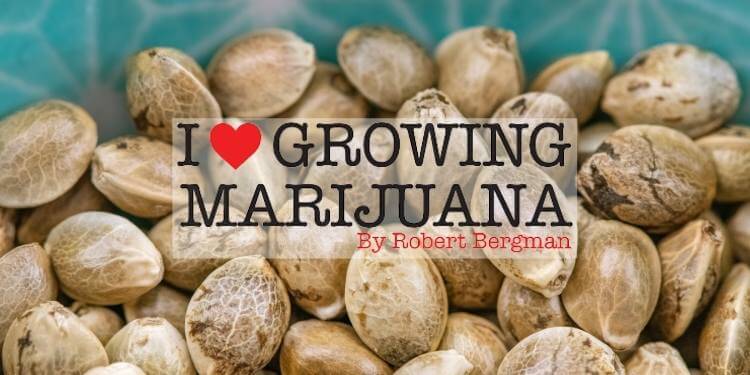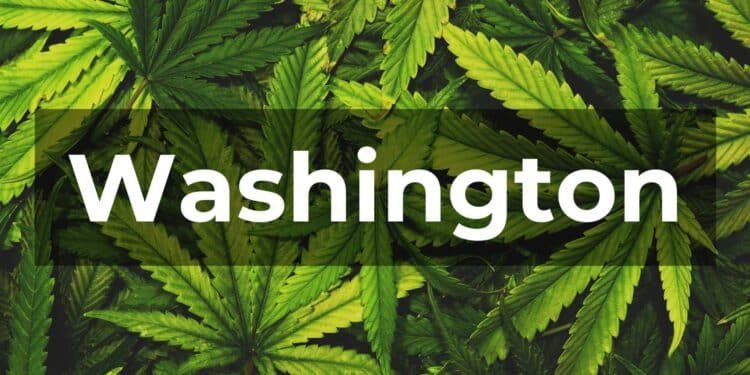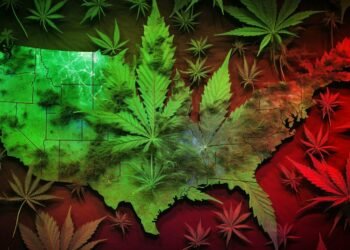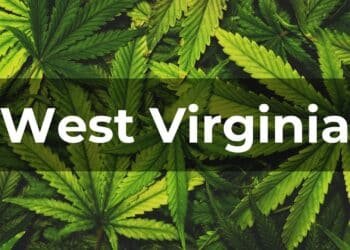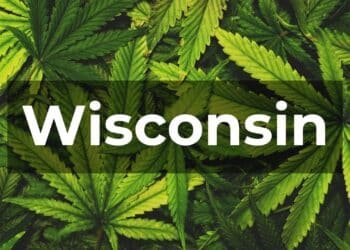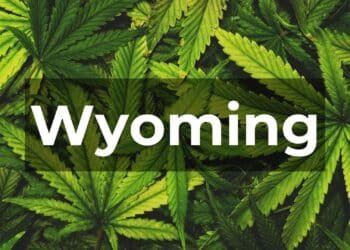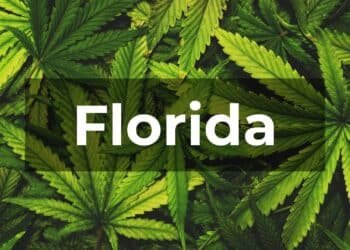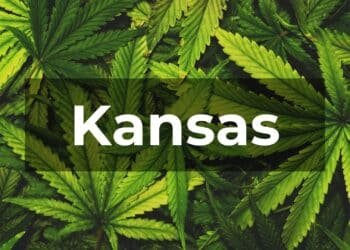As of 2021, marijuana is legal for recreational use in the state of Washington.
The state legalized marijuana in 2012 with the passing of Initiative 502, which allowed adults over the age of 21 to purchase and possess small amounts of marijuana for personal use.
However, there are still regulations and laws surrounding the use and possession of marijuana, including specific possession limits and restrictions on where marijuana can be consumed.
In this article, we will explore the laws and regulations surrounding marijuana in Washington, including possession limits, cultivation and distribution laws, sales and taxation, and restrictions for using marijuana in public and private spaces.
We will also discuss the impact of marijuana use on employment and driving, as well as the laws surrounding marijuana use by minors.
Finally, we will analyze the benefits and drawbacks of marijuana legalization in Washington and address frequently asked questions about the law.
Washington Marijuana Laws
Washington State became one of the first states to legalize the recreational use of marijuana in 2012 with the passing of Initiative 502. This law allows anyone who is aged 21 and over to possess and use up to one ounce of marijuana for recreational purposes.
However, there are still restrictions on where marijuana can be used and purchased, and the law does not override federal regulations which still classify marijuana as an illegal substance.
Initiative 502 also set up a licensing and regulatory structure for the cultivation, processing, and retail sale of marijuana in the state.
The Washington State Liquor and Cannabis Board (WSLCB) is responsible for overseeing this system and ensuring that all participants comply with the state’s regulations.
Washington Cannabis Laws
Under Washington’s cannabis laws, adults over the age of 21 can possess up to one ounce of usable marijuana, 16 ounces of marijuana-infused product in solid form, and 72 ounces of marijuana-infused product in liquid form.
Medical marijuana patients are allowed to possess up to three ounces of usable marijuana, 48 ounces of marijuana-infused product in solid form, and 216 ounces of marijuana-infused product in liquid form.
Cannabis consumption is not allowed in public places, including parks, sidewalks, and restaurants. Smoking marijuana is also prohibited in areas where smoking is banned by law. Furthermore, it is illegal to operate a motor vehicle while under the influence of cannabis, just like with alcohol.
Washington Marijuana Legalization
Washington’s marijuana legalization initiative allows for the sale of recreational cannabis by licensed retailers. However, these retailers must follow the strict regulations set up by the WSLCB. For example, they are only allowed to sell marijuana in one-ounce increments, and they cannot sell any products that are appealing to children, such as candy or gummies. Retailers must also pay a 37% excise tax on all marijuana products sold.
There are also regulations surrounding the cultivation of marijuana in Washington. All growers must be licensed by the state, and they are limited in the amount of marijuana they can produce. Additionally, all marijuana grown for recreational use must be tested for purity and potency before being sold to consumers.
While marijuana is legal for recreational use in Washington, it is important to note that it is still illegal under federal law. This has caused some confusion and conflict with federal authorities, particularly in regards to banking and financing for cannabis businesses.
History of Marijuana Legalization in Washington
Marijuana has a long and complex history in Washington state. The first restrictions on marijuana use were put in place in 1923, when the state legislature passed a law banning the drug. Over the next several decades, marijuana use remained illegal and subjected to strict penalties.
In 1998, Washington voters approved Initiative 692, which legalized the use of medical marijuana for patients with certain qualifying conditions. This initiative allowed patients with conditions such as cancer, HIV/AIDS, and multiple sclerosis to use marijuana for medicinal purposes if recommended by a healthcare provider.
In 2012, Washington voters passed Initiative 502, which legalized the recreational use of marijuana for adults over the age of 21. The initiative established a regulatory system for the cultivation, processing, and sale of marijuana, and created a framework for regulating the drug similar to that used for alcohol.
Since the passage of Initiative 502, Washington has become one of the leading states in marijuana legalization. The state has developed a highly regulated system for marijuana production and sales, and has generated significant tax revenue from the sale of the drug.
Impact of Legalization
The legalization of marijuana in Washington has had a significant impact on the state’s economy, criminal justice system, and public health. Supporters of legalization argue that it has reduced crime rates, increased tax revenue, and provided a safe and regulated source of marijuana for adults who choose to use it.
However, opponents of legalization argue that it has led to an increase in drug use and impaired driving, and that it poses a risk to public health and safety. Some critics have also raised concerns about the potential for marijuana to be used as a “gateway drug” to harder drugs such as heroin or cocaine.
Current Policy
Today, marijuana use is legal in Washington for both medical and recreational purposes. However, there are strict rules and regulations governing the cultivation, processing, and sale of the drug, and violations of these rules can result in serious legal consequences.
Washington’s approach to marijuana legalization is unique, and serves as a model for other states considering similar measures. While the debate over the impact of marijuana legalization is likely to continue, there is no doubt that the legalization of the drug has had a significant impact on the state of Washington.
Marijuana Possession Laws in Washington
In Washington, possession of small amounts of marijuana for personal use is legal for individuals who are 21 years old or older. However, possession of larger quantities or distribution of marijuana is still illegal and can result in prosecution.
Here are the possession limits for both medical and recreational users:
| Possession Limits | Medical Use | Recreational Use |
|---|---|---|
| Flower | 3 ounces | 1 ounce |
| Concentrate | 21 grams | 7 grams |
| Edible | 48 ounces | N/A |
If a person is found in possession of marijuana that exceeds the legal limit, they can be charged with a misdemeanor or felony, depending on the quantity in their possession. The penalties for violating possession limits can result in fines, jail time, or both.
Additionally, it is important to note that marijuana possession on federal land, such as national parks or forests, is illegal and can result in federal prosecution.
Marijuana Cultivation and Distribution Laws in Washington
In Washington, the cultivation and distribution of marijuana is allowed under certain conditions. Those who wish to grow or distribute marijuana must obtain a valid license from the Washington State Liquor and Cannabis Board.
The rules for obtaining a license vary depending on the type of license desired. There are licenses for marijuana producers, processors, and retailers. Each type of license has its own set of requirements that must be met before a license will be issued.
Once a license has been obtained, there are strict regulations that must be followed. These regulations cover everything from the amount of marijuana that can be grown or stored to the security measures that must be in place to prevent theft.
| License Type | Requirements |
|---|---|
| Producer | Must be at least 21 years old, pass a criminal background check, and meet certain production requirements. |
| Processor | Must be at least 21 years old, pass a criminal background check, and meet certain processing requirements. |
| Retailer | Must be at least 21 years old, pass a criminal background check, and meet certain sales requirements. |
Violating these regulations can result in the revocation of a license, fines, and even criminal charges. It is important for those who wish to grow or distribute marijuana to fully understand these regulations and adhere to them closely.
Marijuana Cultivation Limits in Washington
In Washington, the amount of marijuana that can be grown is limited. For personal use, adults over 21 years of age can grow up to six marijuana plants. Medical patients can grow up to 15 plants for personal use.
For commercial growers, the amount of marijuana that can be grown is determined by the license type and production requirements. There are limits on the number of plants that can be grown and the amount of marijuana that can be harvested.
Marijuana Distribution Limits in Washington
The distribution of marijuana in Washington is also regulated. Retailers are only allowed to sell marijuana products to those who are 21 years old or older and who have a valid ID. Retailers must also follow strict labeling requirements, which include the amount of THC and CBD in the product.
Transportation of marijuana is also regulated in Washington. Marijuana cannot be transported out of state and must be transported in a secure and traceable manner. Violating these regulations can result in fines and the revocation of a license.
Marijuana Sales and Taxation in Washington
The sale and taxation of marijuana in Washington is regulated by the Liquor and Cannabis Board (LCB). The LCB oversees the licensing and regulation of marijuana producers, processors, and retailers.
There are several types of marijuana products available for purchase in Washington, including dried marijuana flowers, pre-rolled joints, edibles, and concentrates. The prices of these products vary depending on the type and quality of the product, as well as the taxes and fees associated with its sale.
| Type of Tax/Fee | Rate |
|---|---|
| Excise Tax | 37% on retail sales |
| Sales and Use Tax | Varies by location |
| Local Sales Tax | Varies by location |
| Business and Occupation Tax | Varies by business size |
These taxes and fees generate significant revenue for the state of Washington. In the 2021 fiscal year, the LCB reported a total revenue of $469 million from marijuana taxes and fees.
Consumers are required to pay these taxes and fees at the point of sale, and the revenue is used to fund various state programs, including substance abuse prevention and treatment, youth education, and public health initiatives.
It is important to note that marijuana sales are still illegal under federal law, which can create challenges for businesses operating in the state. Despite this, the LCB has been successful in regulating the marijuana industry in Washington, and the state has become a model for other states considering marijuana legalization.
Marijuana Use in Public and Private Spaces in Washington
Marijuana use is legal for adults aged 21 and older in Washington. However, there are restrictions on where marijuana can be used.
Marijuana Use in Public Spaces in Washington
It is illegal to use marijuana in public places in Washington. This includes parks, sidewalks, and restaurants, among other places. Violators may face a fine of up to $100.
Some cities in Washington have also implemented additional restrictions on marijuana use in public spaces. For example, Seattle has designated certain public parks as “drug-free zones,” where marijuana use is prohibited at all times.
Marijuana Use in Private Spaces in Washington
Unlike public spaces, marijuana use is allowed in private spaces in Washington. This includes private residences and designated marijuana consumption lounges. However, it is important to note that landlords and property owners may still prohibit marijuana use on their properties, even if it is legal under state law.
In addition, it is illegal to drive under the influence of marijuana, even if the use took place in a private space.
Marijuana and Employment in Washington
Washington state has some of the most progressive laws in the United States when it comes to marijuana use. However, these laws do not necessarily protect employees who use marijuana from consequences in the workplace.
Marijuana Use and Employment in Washington
While Washington state law allows for the use of marijuana, employers still maintain the right to drug test their employees. According to the Washington State Attorney General’s Office, employers can require employees to submit to drug tests, and they can use the results of those tests to make employment decisions. This means that an employee who uses marijuana, even if it is for medical purposes, can be terminated from their job if they fail a drug test.
However, there are some exceptions to this rule. The Washington State Medical Use of Marijuana Act provides some protections for medical marijuana patients. Under this law, employers are required to accommodate an employee’s medical use of marijuana, unless it would cause the employer significant difficulty or expense. Employers are not required to allow employees to use marijuana on the job or to be under the influence of marijuana while at work.
It is important for employees who use marijuana to understand their employer’s drug policies. If an employee is concerned about drug testing, they should review their employer’s policy and speak with human resources or an employment attorney.
Washington Workplace Drug Testing Laws
Washington state has strict laws governing workplace drug testing. Employers must follow specific guidelines when testing employees for drugs, and they are required to give employees notice of the testing policy. Employers must also have a written drug testing policy that outlines the consequences of a positive drug test.
Employers are also required to use certified laboratories for drug testing, and employees have the right to request a retest if they believe the initial test was faulty. In addition, employers are required to maintain confidentiality about drug test results.
It is important for employers to understand the laws governing workplace drug testing in Washington state. Failure to follow these laws can result in legal action against the employer.
While the laws in Washington state are more permissive than in many other states, employees should still be aware of the risks associated with marijuana use in the workplace. It is important to understand your employer’s drug policy and to speak with an attorney if you have concerns about your employment status.
Marijuana and Driving in Washington
Washington has strict laws and penalties for driving under the influence of marijuana. It is illegal to operate a vehicle while under the influence of marijuana, and doing so can result in a DUI charge.
If a driver is found to have a THC concentration of 5 nanograms or more per milliliter of blood, they can be charged with a DUI. It is important to note that this limit applies regardless of whether the driver is a medical marijuana patient or a recreational user.
Consequences of a DUI
A DUI conviction for marijuana use can result in fines, jail time, license suspension, and the requirement to attend drug education programs. The severity of the penalties depends on the number of previous DUI convictions on the driver’s record, as well as other factors such as whether there was an accident or injury involved.
It is important to always designate a sober driver or use alternative transportation if planning to consume marijuana.
“Driving under the influence of marijuana is dangerous and illegal. Don’t risk your safety and the safety of others on the road.”
Marijuana and Minors in Washington
Washington State has strict regulations regarding marijuana use by minors. In accordance with state law, it is illegal for individuals under the age of 21 to purchase, possess, or consume marijuana. Violating these laws can result in legal penalties, including fines, community service, and even incarceration.
It is also important to note that providing marijuana to minors is a serious offense, with potential consequences including fines and imprisonment. Parents and guardians should be especially cautious to keep marijuana products out of reach of minors, as accidental ingestion can pose serious health risks.
What are the penalties for minors possessing marijuana in Washington?
If an individual under the age of 21 is caught with marijuana in Washington, the penalties can vary depending on the circumstances. Possessing less than 40 grams of marijuana is considered a civil infraction with a fine of up to $250. However, possessing more than 40 grams or possessing marijuana with intent to distribute can result in criminal charges, with potential penalties including fines and incarceration.
Can minors use marijuana for medical purposes in Washington?
Under Washington State law, minors may use medical marijuana with the approval of a healthcare professional and with the consent of a parent or legal guardian. However, the use of medical marijuana by minors is strictly regulated, and minors may only use certain forms of marijuana that are low in THC (the psychoactive component of marijuana). In addition, minors may only use medical marijuana on school grounds if permitted by the school’s policies and with the approval of school officials.
What resources are available for parents concerned about marijuana use by minors?
For parents and guardians concerned about the potential risks of marijuana use by minors, there are resources available to provide support and guidance. The state of Washington offers a variety of prevention programs and resources, including the Washington State Prevention Summit and the Washington State Healthy Youth Survey.
Additional resources for parents and guardians include the Partnership for Drug-Free Kids, which offers information and support for families dealing with substance use issues, and the Substance Abuse and Mental Health Services Administration’s National Helpline, which provides information and referrals for individuals seeking help with substance abuse and mental health issues.
Benefits and Drawbacks of Marijuana Legalization in Washington
Since the legalization of marijuana in Washington, there have been both positive and negative effects on the state. Here’s an overview of the benefits and drawbacks:
Benefits of Marijuana Legalization in Washington
| Benefits | Explanation |
|---|---|
| New source of tax revenue | The state has earned millions of dollars in tax revenue from the sale of marijuana, which has been used to fund education, healthcare, and other public services. |
| Reduced strain on criminal justice system | Legalizing marijuana has reduced the number of low-level drug offenders behind bars, freeing up resources for law enforcement to focus on more serious crimes. |
| Increased access to medical marijuana | Patients with qualifying medical conditions can now legally obtain and use marijuana for medicinal purposes, providing relief for symptoms of chronic pain, nausea, and other conditions. |
Drawbacks of Marijuana Legalization in Washington
| Drawbacks | Explanation |
|---|---|
| Increased use among minors | Since legalization, there has been an uptick in marijuana use among minors, leading to concerns about the long-term effects on brain development. |
| Public safety concerns | Driving under the influence of marijuana has become an issue, with some drivers causing accidents after using the drug. There have also been reports of increased emergency room visits related to marijuana use. |
| Impact on mental health | Some studies suggest that marijuana use can lead to increased risk of psychosis and other mental health issues, particularly among heavy users. |
Overall, the legalization of marijuana in Washington has had a significant impact on the state, with both benefits and drawbacks to consider. It’s important to continue monitoring the effects of marijuana legalization and make adjustments as needed to ensure the health and safety of the public.
FAQs about Marijuana Legalization in Washington
As marijuana legalization is still a relatively new development in Washington, many people have questions about the specifics of the laws and regulations. Here are some frequently asked questions about marijuana legalization in the state:
Do I need a license to use marijuana in Washington?
While you do not need a license to possess or use marijuana in Washington, you do need a license to sell, grow, or distribute it. Additionally, you must be 21 years of age or older to legally possess and use marijuana in the state.
Can I purchase marijuana in Washington if I am from out of state?
Yes. As long as you are 21 years of age or older, you can legally purchase and possess marijuana in Washington regardless of where you are from. However, it is important to note that transporting marijuana across state lines is still illegal, so you cannot take it with you when you leave the state.
Are there restrictions on where I can use marijuana in Washington?
Yes. It is illegal to use marijuana in public places such as parks, sidewalks, and restaurants. Additionally, some apartment complexes and rental properties may have their own rules about marijuana use on the premises.
Can I fail a drug test for marijuana use if it is legal in Washington?
Yes. While marijuana use is legal in Washington, employers still have the right to drug test their employees and to prohibit marijuana use on the job. If you fail a drug test for marijuana use, you could face disciplinary action or even termination from your job.
What are the penalties for violating Washington’s marijuana laws?
The penalties for violating Washington’s marijuana laws vary depending on the severity of the offense. Possession of more than the legal limit can result in fines and/or jail time, while selling marijuana without a license can result in much more serious penalties.
Can I grow my own marijuana in Washington?
Yes, but you must obtain a license from the state’s Liquor and Cannabis Board to do so legally. The amount of marijuana plants you are allowed to grow depends on the type of license you have obtained.


